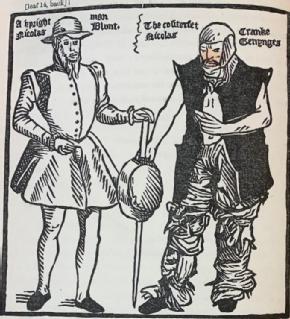Premodern Fakes and Forgeries
One-day workshop, Friday November 4th, 2022
What is a fake? Why do they matter? And what do they tell us about the premodern world? These questions are common to a range of fields of premodern history. Historians of art, science, medicine, scholarship, and sociability have all turned to fakes as a way of illuminating major themes of early modernity, from religious polemic to global trade. This one-day workshop will bring these approaches together so that they can illuminate one another. Each speaker will discuss a particular kind of fake, from friends to gems to medical texts.
Venue: FAB5.03, Faculty of Arts Building. All welcome.
Programme
12-12:45pm - catered lunch
Session 1 (chaired by Stefan Bauer):
12:45-1pm - Introduction by Michael Bycroft (Warwick, History) and Stefan Bauer (KCL, Warwick; History)
1-1:45pm - Caroline Petit (Warwick, Classics & Ancient History), Uses and Abuses of a Great Name: The Intriguing History of Pseudo-Galenic Texts
1:45-2pm - Comfort break
Session 2 (chaired by Michael Bycroft):
2-2:45pm - Lucia Raggetti (Bologna, Philosophy and Communication - remote speaker), Shrewd Craftsmen and Skilful Inspectors: the Mediaeval Islamic Market as Stage for Adulteration and Forgeries
2:45-3:30pm - Aysu Dincer (Warwick, History), ‘Adulterate, Imitate, Fabricate’: Fake Aromatics in Late Medieval and Early Modern Europe
3:30-4pm - Afternoon tea
Session 3 (chaired by Stefan Bauer):
4-4:45pm - Naomi Pullin (Warwick, History), False Friends and the Importance of Enemies in Early Modern Friendship Literature
4:45-5:30pm - Michael Bycroft (Warwick, History), The Place of Fakes in Enlightenment Mineralogy
Please direct any queries to Michael Bycroft (M.Bycroft@warwick.ac.uk) or Stefan Bauer (stefan.bauer@warwick.ac.uk).

Comparison of an ‘upright man’ and a ‘counterfeit crank’ from Thomas Harman’s A Caveat or Warning for Common Cursitors, Vulgarly Called Vagabonds (1566).
